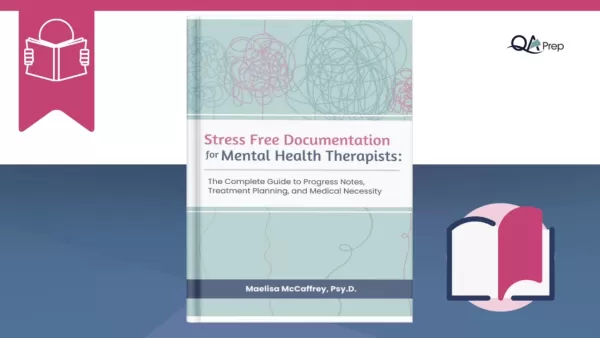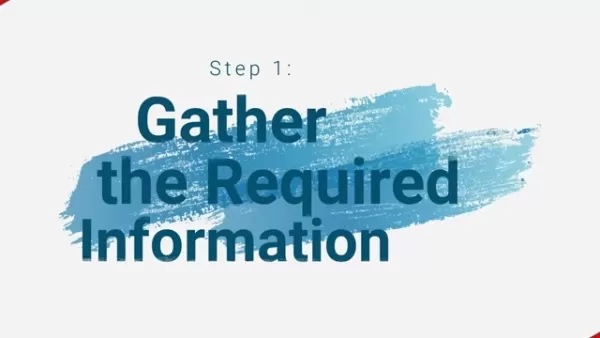AI Therapy Notes: Cautions for Mental Health Professionals
The landscape of mental health is being reshaped by the integration of Artificial Intelligence (AI), which introduces innovative tools to enhance the efficiency of clinicians. A standout application is AI's ability to generate therapy progress notes, promising to cut down on documentation time and potentially streamline the entire process. However, as exciting as these advancements are, it's essential to tread carefully, especially with regards to patient data and ethical considerations. This article delves into the critical factors and concerns surrounding the use of AI in mental health documentation, with a particular focus on progress notes.
Key Points
- AI progress note generators can drastically reduce the time spent on documentation by mental health professionals.
- Data privacy and security remain top priorities when employing AI platforms.
- Client consent is vital for any AI involvement in their treatment, including note-taking.
- AI-generated recordings and transcripts may become part of the official mental health record.
- Understanding the data deletion policies of AI platforms is crucial.
- Professional bodies are continually discussing and developing ethical guidelines for AI use in mental health.
- Informed consent is a major ethical issue when it comes to AI in therapy documentation.
- Staying informed and exercising caution are key to the ethical use of AI.
Navigating the AI Landscape for Therapy Progress Notes
The Allure of AI in Mental Health Documentation
The appeal of using AI in mental health is undeniable. Picture a tool that not only transcribes therapy sessions with precision but also identifies key themes and generates comprehensive progress notes with ease. This could be a game-changer, saving clinicians valuable time and allowing them to focus more on patient care. It could even help reduce the burnout often associated with administrative duties. For clinicians who are neurodivergent or struggle with documentation, AI seems like a beacon of hope. Yet, the path to integrating AI responsibly and ethically is filled with considerations that can't be overlooked.
Caution #1: Data Security and the Mental Health Record
One of the primary concerns with AI progress note generators is the security and privacy of patient data. Many AI platforms designed for mental health generate a wealth of data, including session recordings, transcripts, and summaries. The burning question is: What becomes of this data? More importantly, does it become part of the patient's official Mental Health Record?

Most AI systems operate on separate platforms. Clinicians log into the AI system, generate progress notes, and then transfer these notes to their Electronic Health Record (EHR). This duplication of patient information across different platforms can increase the risk of data breaches or unauthorized access, even if the AI platform adheres to HIPAA standards.
It's crucial to understand the data deletion policies and how data is stored. Is it deleted permanently or archived? If archived, how is access controlled? These details are vital for maintaining patient confidentiality and ethical standards.
To mitigate these risks, clinicians should:
- Thoroughly review the AI platform's data security policies before adoption.
- Minimize the data stored on the AI platform to only what's necessary for progress notes.
- Establish clear protocols for data deletion once notes are finalized and secured in the EHR.
- Inform patients about data storage and security measures, obtaining informed consent that addresses these practices specifically.
Caution #2: The Critical Importance of Client Consent for AI Use
Obtaining proper client consent is both an ethical necessity and a legal requirement when using AI tools. This is especially pertinent for session recordings. General consent for treatment may not suffice; specific permission to record sessions and use AI for note generation is needed. Telehealth consent, AI consent, and recording consent are distinct issues that need separate consideration.

Here's why client consent is so important:
- Respect for Autonomy: Clients have the right to make informed decisions about their treatment and data usage.
- Transparency and Trust: Clear communication about AI use fosters trust and strengthens the therapeutic relationship.
- Legal and Ethical Compliance: Many regions have specific regulations regarding recording therapy sessions and using AI in healthcare. Failing to obtain proper consent can result in legal and ethical breaches.
Clinicians must inform clients about:
- The purpose of using AI, such as improving documentation efficiency or enhancing treatment planning.
- The types of data collected, like session recordings and transcripts, and how they will be used by the AI system.
- The security measures in place to protect their data.
- Their right to refuse AI use, with assurance that their decision won't affect the quality of care received. Explain whether clients can opt out of recording while still allowing AI-generated progress notes.
Strategies for Mitigating Risks
Steps to Help Protect Your Practice and Clients
While there are potential pitfalls to using AI, here are some strategies to help mitigate these risks:
- Develop specific consent forms that address telehealth, AI usage, and session recording separately, ensuring they cover data storage, security, and deletion policies. Have these forms reviewed by an attorney for compliance.
- Seek additional training on AI and its proper use within your practice. Stay informed about potential risks and downfalls to address them with your clients.
- Always review official records against your own notes and observations before finalizing to ensure accuracy.

- Advocate for the development of clear ethical guidelines for AI use by collaborating with professional organizations. These discussions need to be ongoing due to the ever-evolving nature of technology.
Advantages and Disadvantages
Pros
- Reduced Documentation Time: AI can automate the note generation process.
- Improved Efficiency: Streamlined administrative tasks.
- Enhanced Accuracy: With proper input, AI can ensure thoroughness.
- Better Focus on Clients: Frees up clinician time for patient care.
Cons
- Data Security Risks: Sensitive information stored on external platforms.
- Client Privacy Concerns: Requires explicit consent.
- Ethical Considerations: Potential for bias and lack of empathy.
- Over-Reliance on AI: Clinicians must maintain critical thinking.
Frequently Asked Questions
What are the benefits of using AI in therapy documentation?
AI can save time, improve efficiency, and potentially reduce burnout for clinicians by automating tasks such as transcription, note generation, and treatment planning.
Is it legal to record therapy sessions?
Laws vary by jurisdiction. Always obtain explicit consent from clients before recording any session. Some jurisdictions require two-party consent, and there may be specific requirements for data encryption, storage location, and deletion policies.
How can I protect client data when using AI?
Review the AI platform's security policies, minimize data storage on the platform, establish data deletion protocols, and inform patients about data usage and security measures.
What should I include in an AI consent form?
The purpose of using AI, types of data collected, security measures, data retention and deletion policies, client rights, and the option to refuse AI usage. Ensure the document meets legal requirements and best practices for ethics.
Related Questions
Are AI-generated therapy notes as good as human-written notes?
The quality of AI-generated notes depends on the AI system's accuracy, the clinician's input, and adherence to best practices for documentation. It's always recommended for the clinician to review the notes for accuracy.
How will AI continue to evolve for use in mental health?
AI is constantly evolving. In the future, AI systems may be able to offer insights into treatment effectiveness and uncover new use cases that are yet to be imagined!
Is there anywhere I can receive further training?
Stay connected with your professional organizations, as they often provide continuing education opportunities related to AI in mental health.
Related article
 AI-Powered Cover Letters: Expert Guide for Journal Submissions
In today's competitive academic publishing environment, crafting an effective cover letter can make the crucial difference in your manuscript's acceptance. Discover how AI-powered tools like ChatGPT can streamline this essential task, helping you cre
AI-Powered Cover Letters: Expert Guide for Journal Submissions
In today's competitive academic publishing environment, crafting an effective cover letter can make the crucial difference in your manuscript's acceptance. Discover how AI-powered tools like ChatGPT can streamline this essential task, helping you cre
 US to Sanction Foreign Officials Over Social Media Regulations
US Takes Stand Against Global Digital Content Regulations
The State Department issued a sharp diplomatic rebuke this week targeting European digital governance policies, signaling escalating tensions over control of online platforms. Secretary Marco
US to Sanction Foreign Officials Over Social Media Regulations
US Takes Stand Against Global Digital Content Regulations
The State Department issued a sharp diplomatic rebuke this week targeting European digital governance policies, signaling escalating tensions over control of online platforms. Secretary Marco
 Ultimate Guide to AI-Powered YouTube Video Summarizers
In our information-rich digital landscape, AI-powered YouTube video summarizers have become indispensable for efficient content consumption. This in-depth guide explores how to build a sophisticated summarization tool using cutting-edge NLP technolog
Comments (11)
0/200
Ultimate Guide to AI-Powered YouTube Video Summarizers
In our information-rich digital landscape, AI-powered YouTube video summarizers have become indispensable for efficient content consumption. This in-depth guide explores how to build a sophisticated summarization tool using cutting-edge NLP technolog
Comments (11)
0/200
![ChristopherDavis]() ChristopherDavis
ChristopherDavis
 September 15, 2025 at 10:30:34 PM EDT
September 15, 2025 at 10:30:34 PM EDT
L'IA dans la santé mentale ? Intéressant mais prudence... 🤔 J'ai peur que les notes générées manquent de nuances humaines cruciales. Et si l'IA rate un détail subtil dans le langage corporel ou le ton de voix noté par le thérapeute ? Ça pourrait changer toute l'orientation du traitement.


 0
0
![TimothyHernández]() TimothyHernández
TimothyHernández
 August 27, 2025 at 6:36:38 AM EDT
August 27, 2025 at 6:36:38 AM EDT
AI therapy notes sound like a game-changer for clinicians, but I wonder if they’ll miss the human touch in summarizing sessions. Efficiency’s great, but mental health is so nuanced—can AI really capture that? 🤔


 0
0
![KevinJohnson]() KevinJohnson
KevinJohnson
 August 25, 2025 at 5:47:02 AM EDT
August 25, 2025 at 5:47:02 AM EDT
This AI therapy notes thing sounds like a game-changer for shrinks! Cutting down paperwork time? Yes, please! But I wonder if it’ll ever get the nuance of human emotions right. 🤔 Still, anything that helps therapists focus on patients over forms is a win in my book!


 0
0
![JamesLopez]() JamesLopez
JamesLopez
 August 9, 2025 at 7:00:59 AM EDT
August 9, 2025 at 7:00:59 AM EDT
AI therapy notes sound like a game-changer for clinicians! Cutting down paperwork time is huge, but I wonder how it handles sensitive patient data. Security’s gotta be airtight, right? 😬


 0
0
![MatthewHill]() MatthewHill
MatthewHill
 August 5, 2025 at 11:01:00 AM EDT
August 5, 2025 at 11:01:00 AM EDT
AI therapy notes sound like a game-changer for clinicians! Cutting down paperwork time is huge, but I wonder how it handles sensitive patient data. Privacy concerns are real, no? 😅


 0
0
![RichardGonzález]() RichardGonzález
RichardGonzález
 July 28, 2025 at 2:45:48 AM EDT
July 28, 2025 at 2:45:48 AM EDT
This AI therapy note thing sounds cool, but I’m kinda worried it might miss the human touch in mental health. Machines can’t really ‘get’ emotions, right? 🤔 Still, saving time on paperwork could let therapists focus more on patients. Worth a shot!


 0
0
The landscape of mental health is being reshaped by the integration of Artificial Intelligence (AI), which introduces innovative tools to enhance the efficiency of clinicians. A standout application is AI's ability to generate therapy progress notes, promising to cut down on documentation time and potentially streamline the entire process. However, as exciting as these advancements are, it's essential to tread carefully, especially with regards to patient data and ethical considerations. This article delves into the critical factors and concerns surrounding the use of AI in mental health documentation, with a particular focus on progress notes.
Key Points
- AI progress note generators can drastically reduce the time spent on documentation by mental health professionals.
- Data privacy and security remain top priorities when employing AI platforms.
- Client consent is vital for any AI involvement in their treatment, including note-taking.
- AI-generated recordings and transcripts may become part of the official mental health record.
- Understanding the data deletion policies of AI platforms is crucial.
- Professional bodies are continually discussing and developing ethical guidelines for AI use in mental health.
- Informed consent is a major ethical issue when it comes to AI in therapy documentation.
- Staying informed and exercising caution are key to the ethical use of AI.
Navigating the AI Landscape for Therapy Progress Notes
The Allure of AI in Mental Health Documentation
The appeal of using AI in mental health is undeniable. Picture a tool that not only transcribes therapy sessions with precision but also identifies key themes and generates comprehensive progress notes with ease. This could be a game-changer, saving clinicians valuable time and allowing them to focus more on patient care. It could even help reduce the burnout often associated with administrative duties. For clinicians who are neurodivergent or struggle with documentation, AI seems like a beacon of hope. Yet, the path to integrating AI responsibly and ethically is filled with considerations that can't be overlooked.
Caution #1: Data Security and the Mental Health Record
One of the primary concerns with AI progress note generators is the security and privacy of patient data. Many AI platforms designed for mental health generate a wealth of data, including session recordings, transcripts, and summaries. The burning question is: What becomes of this data? More importantly, does it become part of the patient's official Mental Health Record?

Most AI systems operate on separate platforms. Clinicians log into the AI system, generate progress notes, and then transfer these notes to their Electronic Health Record (EHR). This duplication of patient information across different platforms can increase the risk of data breaches or unauthorized access, even if the AI platform adheres to HIPAA standards.
It's crucial to understand the data deletion policies and how data is stored. Is it deleted permanently or archived? If archived, how is access controlled? These details are vital for maintaining patient confidentiality and ethical standards.
To mitigate these risks, clinicians should:
- Thoroughly review the AI platform's data security policies before adoption.
- Minimize the data stored on the AI platform to only what's necessary for progress notes.
- Establish clear protocols for data deletion once notes are finalized and secured in the EHR.
- Inform patients about data storage and security measures, obtaining informed consent that addresses these practices specifically.
Caution #2: The Critical Importance of Client Consent for AI Use
Obtaining proper client consent is both an ethical necessity and a legal requirement when using AI tools. This is especially pertinent for session recordings. General consent for treatment may not suffice; specific permission to record sessions and use AI for note generation is needed. Telehealth consent, AI consent, and recording consent are distinct issues that need separate consideration.

Here's why client consent is so important:
- Respect for Autonomy: Clients have the right to make informed decisions about their treatment and data usage.
- Transparency and Trust: Clear communication about AI use fosters trust and strengthens the therapeutic relationship.
- Legal and Ethical Compliance: Many regions have specific regulations regarding recording therapy sessions and using AI in healthcare. Failing to obtain proper consent can result in legal and ethical breaches.
Clinicians must inform clients about:
- The purpose of using AI, such as improving documentation efficiency or enhancing treatment planning.
- The types of data collected, like session recordings and transcripts, and how they will be used by the AI system.
- The security measures in place to protect their data.
- Their right to refuse AI use, with assurance that their decision won't affect the quality of care received. Explain whether clients can opt out of recording while still allowing AI-generated progress notes.
Strategies for Mitigating Risks
Steps to Help Protect Your Practice and Clients
While there are potential pitfalls to using AI, here are some strategies to help mitigate these risks:
- Develop specific consent forms that address telehealth, AI usage, and session recording separately, ensuring they cover data storage, security, and deletion policies. Have these forms reviewed by an attorney for compliance.
- Seek additional training on AI and its proper use within your practice. Stay informed about potential risks and downfalls to address them with your clients.
- Always review official records against your own notes and observations before finalizing to ensure accuracy.
- Advocate for the development of clear ethical guidelines for AI use by collaborating with professional organizations. These discussions need to be ongoing due to the ever-evolving nature of technology.

Advantages and Disadvantages
Pros
- Reduced Documentation Time: AI can automate the note generation process.
- Improved Efficiency: Streamlined administrative tasks.
- Enhanced Accuracy: With proper input, AI can ensure thoroughness.
- Better Focus on Clients: Frees up clinician time for patient care.
Cons
- Data Security Risks: Sensitive information stored on external platforms.
- Client Privacy Concerns: Requires explicit consent.
- Ethical Considerations: Potential for bias and lack of empathy.
- Over-Reliance on AI: Clinicians must maintain critical thinking.
Frequently Asked Questions
What are the benefits of using AI in therapy documentation?
AI can save time, improve efficiency, and potentially reduce burnout for clinicians by automating tasks such as transcription, note generation, and treatment planning.
Is it legal to record therapy sessions?
Laws vary by jurisdiction. Always obtain explicit consent from clients before recording any session. Some jurisdictions require two-party consent, and there may be specific requirements for data encryption, storage location, and deletion policies.
How can I protect client data when using AI?
Review the AI platform's security policies, minimize data storage on the platform, establish data deletion protocols, and inform patients about data usage and security measures.
What should I include in an AI consent form?
The purpose of using AI, types of data collected, security measures, data retention and deletion policies, client rights, and the option to refuse AI usage. Ensure the document meets legal requirements and best practices for ethics.
Related Questions
Are AI-generated therapy notes as good as human-written notes?
The quality of AI-generated notes depends on the AI system's accuracy, the clinician's input, and adherence to best practices for documentation. It's always recommended for the clinician to review the notes for accuracy.
How will AI continue to evolve for use in mental health?
AI is constantly evolving. In the future, AI systems may be able to offer insights into treatment effectiveness and uncover new use cases that are yet to be imagined!
Is there anywhere I can receive further training?
Stay connected with your professional organizations, as they often provide continuing education opportunities related to AI in mental health.
 AI-Powered Cover Letters: Expert Guide for Journal Submissions
In today's competitive academic publishing environment, crafting an effective cover letter can make the crucial difference in your manuscript's acceptance. Discover how AI-powered tools like ChatGPT can streamline this essential task, helping you cre
AI-Powered Cover Letters: Expert Guide for Journal Submissions
In today's competitive academic publishing environment, crafting an effective cover letter can make the crucial difference in your manuscript's acceptance. Discover how AI-powered tools like ChatGPT can streamline this essential task, helping you cre
 US to Sanction Foreign Officials Over Social Media Regulations
US Takes Stand Against Global Digital Content Regulations
The State Department issued a sharp diplomatic rebuke this week targeting European digital governance policies, signaling escalating tensions over control of online platforms. Secretary Marco
US to Sanction Foreign Officials Over Social Media Regulations
US Takes Stand Against Global Digital Content Regulations
The State Department issued a sharp diplomatic rebuke this week targeting European digital governance policies, signaling escalating tensions over control of online platforms. Secretary Marco
 Ultimate Guide to AI-Powered YouTube Video Summarizers
In our information-rich digital landscape, AI-powered YouTube video summarizers have become indispensable for efficient content consumption. This in-depth guide explores how to build a sophisticated summarization tool using cutting-edge NLP technolog
Ultimate Guide to AI-Powered YouTube Video Summarizers
In our information-rich digital landscape, AI-powered YouTube video summarizers have become indispensable for efficient content consumption. This in-depth guide explores how to build a sophisticated summarization tool using cutting-edge NLP technolog
 September 15, 2025 at 10:30:34 PM EDT
September 15, 2025 at 10:30:34 PM EDT
L'IA dans la santé mentale ? Intéressant mais prudence... 🤔 J'ai peur que les notes générées manquent de nuances humaines cruciales. Et si l'IA rate un détail subtil dans le langage corporel ou le ton de voix noté par le thérapeute ? Ça pourrait changer toute l'orientation du traitement.


 0
0
 August 27, 2025 at 6:36:38 AM EDT
August 27, 2025 at 6:36:38 AM EDT
AI therapy notes sound like a game-changer for clinicians, but I wonder if they’ll miss the human touch in summarizing sessions. Efficiency’s great, but mental health is so nuanced—can AI really capture that? 🤔


 0
0
 August 25, 2025 at 5:47:02 AM EDT
August 25, 2025 at 5:47:02 AM EDT
This AI therapy notes thing sounds like a game-changer for shrinks! Cutting down paperwork time? Yes, please! But I wonder if it’ll ever get the nuance of human emotions right. 🤔 Still, anything that helps therapists focus on patients over forms is a win in my book!


 0
0
 August 9, 2025 at 7:00:59 AM EDT
August 9, 2025 at 7:00:59 AM EDT
AI therapy notes sound like a game-changer for clinicians! Cutting down paperwork time is huge, but I wonder how it handles sensitive patient data. Security’s gotta be airtight, right? 😬


 0
0
 August 5, 2025 at 11:01:00 AM EDT
August 5, 2025 at 11:01:00 AM EDT
AI therapy notes sound like a game-changer for clinicians! Cutting down paperwork time is huge, but I wonder how it handles sensitive patient data. Privacy concerns are real, no? 😅


 0
0
 July 28, 2025 at 2:45:48 AM EDT
July 28, 2025 at 2:45:48 AM EDT
This AI therapy note thing sounds cool, but I’m kinda worried it might miss the human touch in mental health. Machines can’t really ‘get’ emotions, right? 🤔 Still, saving time on paperwork could let therapists focus more on patients. Worth a shot!


 0
0





























